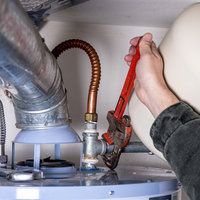Budgeting: It's the Little Things That Kill
When you're saving for retirement, it's understandable that you'd get caught up in the big-picture stuff, but don't let these "little" financial problems sneak up on you.

Many retirement savers focus on the big things, and rightfully so. Building and following a budget, no matter your income level, is a big thing. So is establishing financial goals that make sense, along with an investing strategy that helps you reach those goals. Actually putting money aside each pay period? A big thing, indeed.
Where many of us lose our way is with what may seem like little things; but it’s those little things that can kill either your budget or your overall financial strategy. Why? Because retirement planning isn’t a short-term endeavor, nor is it a simple process. Successfully putting all the pieces together means monitoring a lot of moving parts, over a long period of time. The more moving parts, the higher the chance some of them will fail.
Here, then, are some areas that should receive particular attention as part of your maintenance plans.
Little thing: Investments that underperform. If you are a devoted retirement saver, you’re off to a great start. Time is your friend, and because of compounding interest, you’re likely to be able to secure a much more stable retirement the earlier you start. But sometimes the peace of mind that comes with starting early can make us complacent. It’s easy to just assume that everything is growing.
Maintenance plan: Look at your statements regularly to make sure they’re performing as expected. This is where working with an advisor can be beneficial, because you want to look not just at how your investments are performing, but at how they’re performing relative to similar investments. If you have some clunkers, consider other vehicles that may perform better.
Little thing: Lack of a contingency fund or a miscellaneous expense category. Oh, those once-in-a-lifetime auto repairs! That water heater that had the bad luck to peter out. That new roof that you knew you needed, you just didn’t know you needed it this soon! If only [insert calamity here] hadn’t happened, your budget and/or retirement plan would be back on track!
Maintenance plan: You can’t anticipate the unexpected, can you? That’s why it’s the unexpected! True. But, you know that something is going to come up, because it always does. And if you don’t have a contingency fund or some amount budgeted each year for those unexpected expenses, they will derail your financial plan. Don’t let that happen.
Little thing(s): Commissions, fees, and penalties. Unless you’re making hundreds of trades a year and going crazy with multiple variable annuity products, which most veterinarians are not, chances are that the amount of money you spend each year on broker’s commissions or transaction fees doesn’t seem high. It may not even be high. But, again, when you’re thinking long-term, you start to realize that over the course of your retirement investments, those fees are going to add up. And because of compounding interest (again), the loss of income from those costs will be magnified over time.
Maintenance plan: Know exactly what you’re paying for, what the industry standard is for that fee, and how frequently you’ll be charged. Make sure any advisors you work with spell out very clearly what you’re paying and why. And always factor in expenses and fees—and any possible penalties—when selecting an investment vehicle.